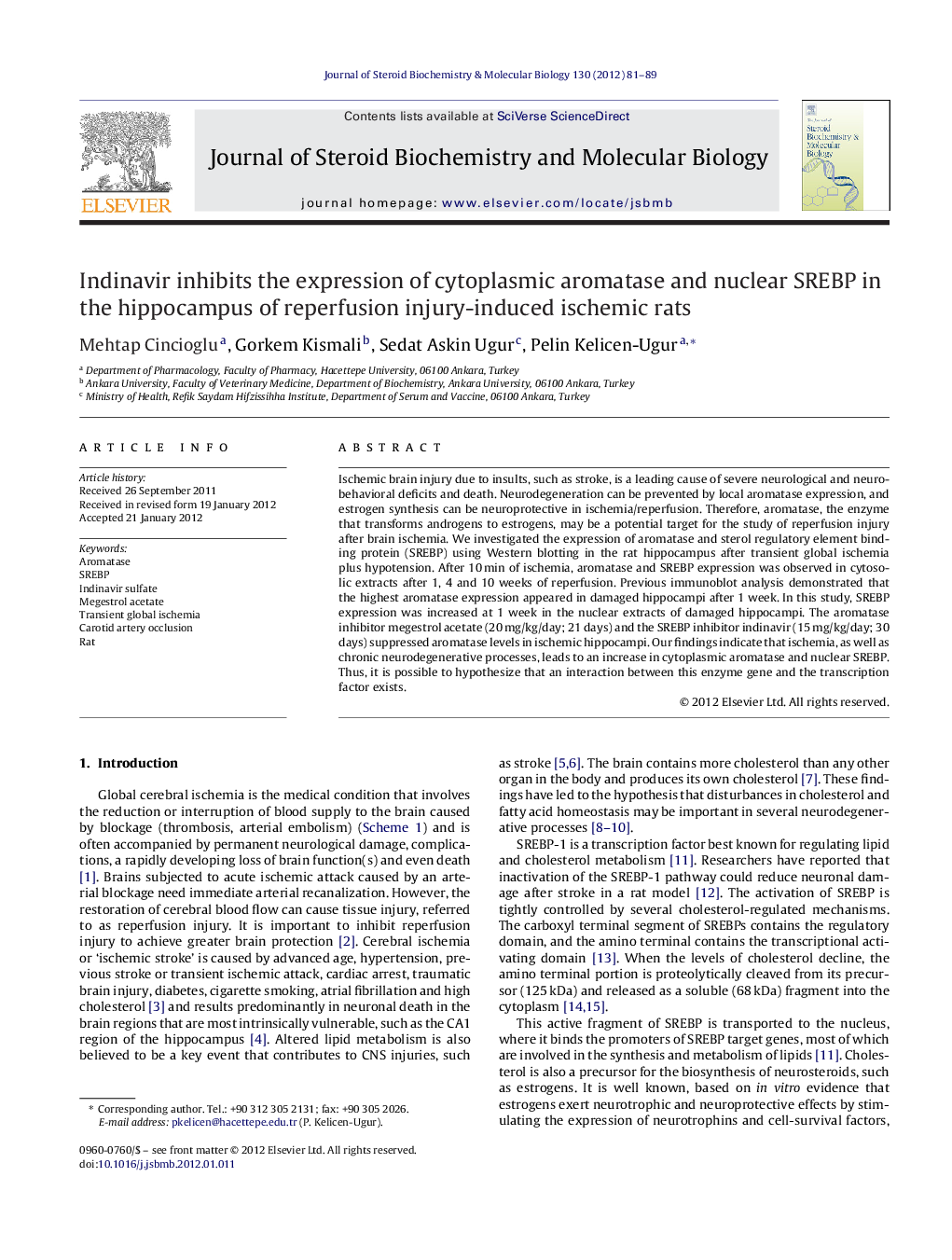| Article ID | Journal | Published Year | Pages | File Type |
|---|---|---|---|---|
| 1991681 | The Journal of Steroid Biochemistry and Molecular Biology | 2012 | 9 Pages |
Ischemic brain injury due to insults, such as stroke, is a leading cause of severe neurological and neurobehavioral deficits and death. Neurodegeneration can be prevented by local aromatase expression, and estrogen synthesis can be neuroprotective in ischemia/reperfusion. Therefore, aromatase, the enzyme that transforms androgens to estrogens, may be a potential target for the study of reperfusion injury after brain ischemia. We investigated the expression of aromatase and sterol regulatory element binding protein (SREBP) using Western blotting in the rat hippocampus after transient global ischemia plus hypotension. After 10 min of ischemia, aromatase and SREBP expression was observed in cytosolic extracts after 1, 4 and 10 weeks of reperfusion. Previous immunoblot analysis demonstrated that the highest aromatase expression appeared in damaged hippocampi after 1 week. In this study, SREBP expression was increased at 1 week in the nuclear extracts of damaged hippocampi. The aromatase inhibitor megestrol acetate (20 mg/kg/day; 21 days) and the SREBP inhibitor indinavir (15 mg/kg/day; 30 days) suppressed aromatase levels in ischemic hippocampi. Our findings indicate that ischemia, as well as chronic neurodegenerative processes, leads to an increase in cytoplasmic aromatase and nuclear SREBP. Thus, it is possible to hypothesize that an interaction between this enzyme gene and the transcription factor exists.
► Aromatase and SREBP expression increase in damaged hippocampi whereas SREBP inhibitor indinavir alters these expressions. ► Indinavir decreases the protein levels of the aromatase enzyme, suggesting a process that SREBP involves aromatase expression in ischemic hippocampus. ► Upregulation of aromatase in ischemic hippocampi may at least partly depend on SREBP. ► These findings support the proposed role of SREBP in the regulation of aromatase in the hippocampus.
